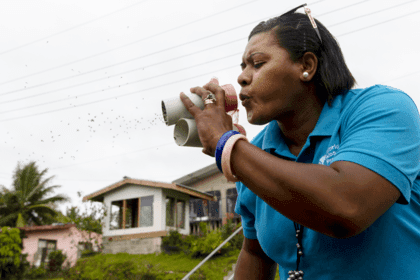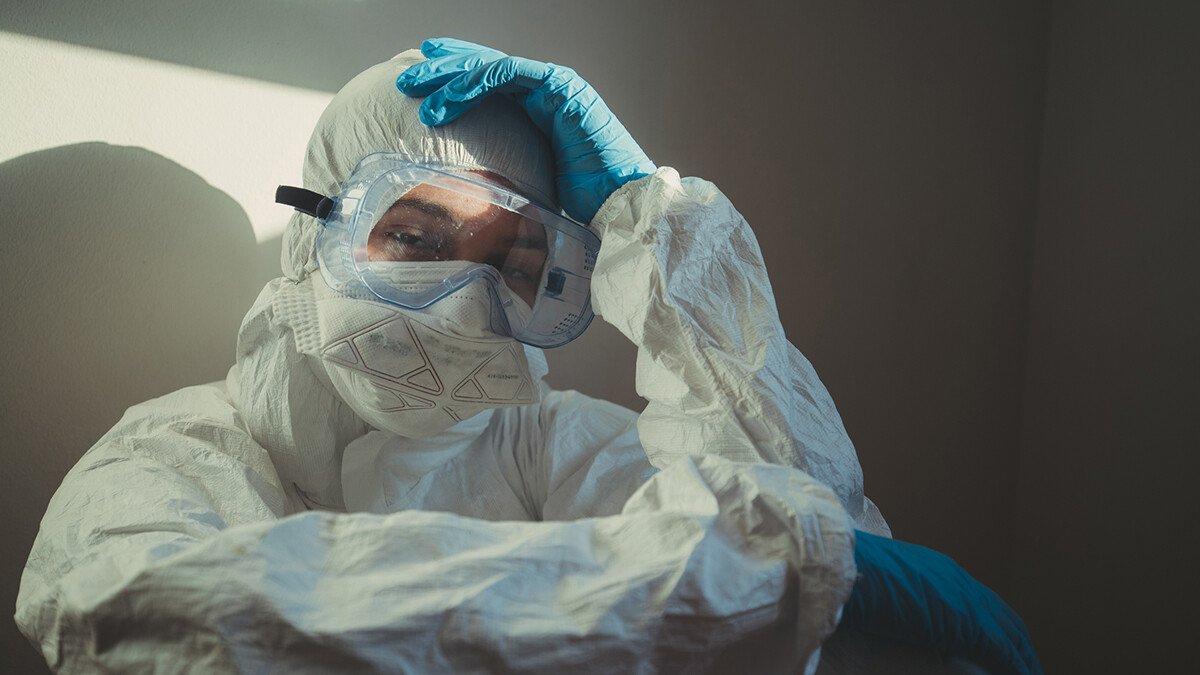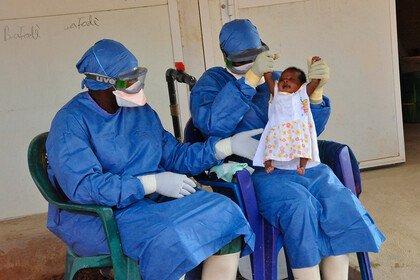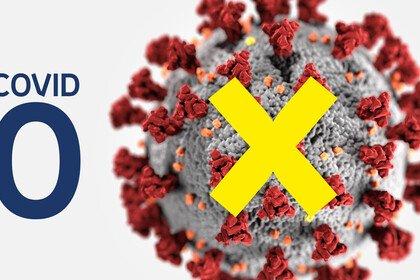
Treatments will take the fear and helplessness out of coronavirus – here’s how businesses can help find them
Science will show us the way out of the COVID-19 pandemic. And businesses and philanthropy can play a major role by stepping up to fund coronavirus treatments, as well as vaccines and tests.

Medical students around the world have leapt at the chance to graduate early so they can care for people during the coronavirus pandemic. Not all of them will be treating patients with COVID-19, but those that are face the stark reality that there is only so much they can do. I know that feeling.
I began my medical career in the 1980s as a junior doctor in London amid the HIV/AIDS epidemic. Patients presented with inexplicable, seemingly untreatable conditions and we often felt scared and helpless. At the time, we had no tests, no treatments and no vaccine.
Almost four decades on, there is still no vaccine. But the first drug was developed in 1987, and by the mid-1990s, antiretroviral therapy had been developed as the standard approach to treatment.
Even as scientists continue to search for an HIV vaccine, global access to effective, affordable treatments has transformed lives for the better. With access to antiretroviral treatments and the right care, people living with HIV can now manage their condition and live long, healthy lives.
Science is the exit strategy from every epidemic. It will be our exit strategy from the coronavirus pandemic too, but we need to fund it in a way that produces results much faster than ever before and on a global, equitable scale from the outset.
To do this, we need swift, sustained and substantial funding from governments, philanthropy and the private sector to fund critical social science, and development of diagnostic tests, treatments and vaccines.
Our experience of the HIV/AIDS epidemic shows that while a coronavirus vaccine would be ideal, there are no guarantees that one will work. And if we do find a viable candidate, it may take a year or more to be ready at the global scale needed.
Effective and proven coronavirus treatments are also a crucial part of the answer to this crisis. They could prevent infection, save lives, protect public health and help us get ahead of this pandemic while we continue our search for a vaccine.
We need to direct the same energy that we are putting into vaccines towards finding equitable and globally accessible treatments.
The search should begin by screening existing medicines that might help. That’s the idea behind dexamethasone, a type of steroid used to reduce inflammation in a range of conditions, including sore throats, which is the first treatment to be shown to improve survival in COVID-19. But there are many other possibilities out there.
We can’t afford to place all our bets on any one without evidence; we don’t have time to test them one by one in large-scale trials.
Accelerating the search for a game-changing treatment takes coordination and funding for large trials running in parallel. The COVID-19 Therapeutics Accelerator is trying to do just that but it needs much, much more funding to do so.
Founded by Wellcome, Mastercard and the Bill & Melinda Gates Foundation in March 2020, the Therapeutics Accelerator is a philanthropic initiative to coordinate research, remove barriers to drug development and scale up treatments to address the pandemic.
The Therapeutics Accelerator is funding multiple efforts to ensure any potential coronavirus treatment is effective and safe. This includes screening drug compound collections and funding rigorous clinical trials of existing drugs.
This is the most effective way for philanthropy and the private sector to support the search for treatments. Other companies and philanthropists agree: Mastercard donated $25 million, Avast donated $12 million, and the Michael & Susan Dell Foundation donated $20 million to this effort. To ramp up this work, we need more philanthropic and private sector leaders to join us.
By fully funding research and development for social science, tests, treatments and vaccines, we can achieve COVID-Zero: no more preventable deaths, no more lockdowns and no more disruption.
Wellcome’s COVID-Zero campaign is calling upon businesses and philanthropy to urgently donate to organisations that are coordinating this research effort and putting in place mechanisms to globally scale their results in an equitable way. These organisations include the Coalition for Epidemic Preparedness Innovations (CEPI), the Foundation for Innovative New Diagnostics (FIND), the WHO Solidarity Response Fund, and the Therapeutics Accelerator.
To join the campaign, get in touch or pledge your contribution during the Global Citizen’s Global Goal: Unite for our Future event on Saturday 27 June.
We will look back at this time decades from now as I am looking back at the HIV/AIDS epidemic today. We’ll remember the fear and helplessness. We’ll remember the medics, carers and nurses who sacrificed so much.
But we’ll also remember that science showed us the way out of this pandemic. And we’ll remember those who stepped up to fund it.




